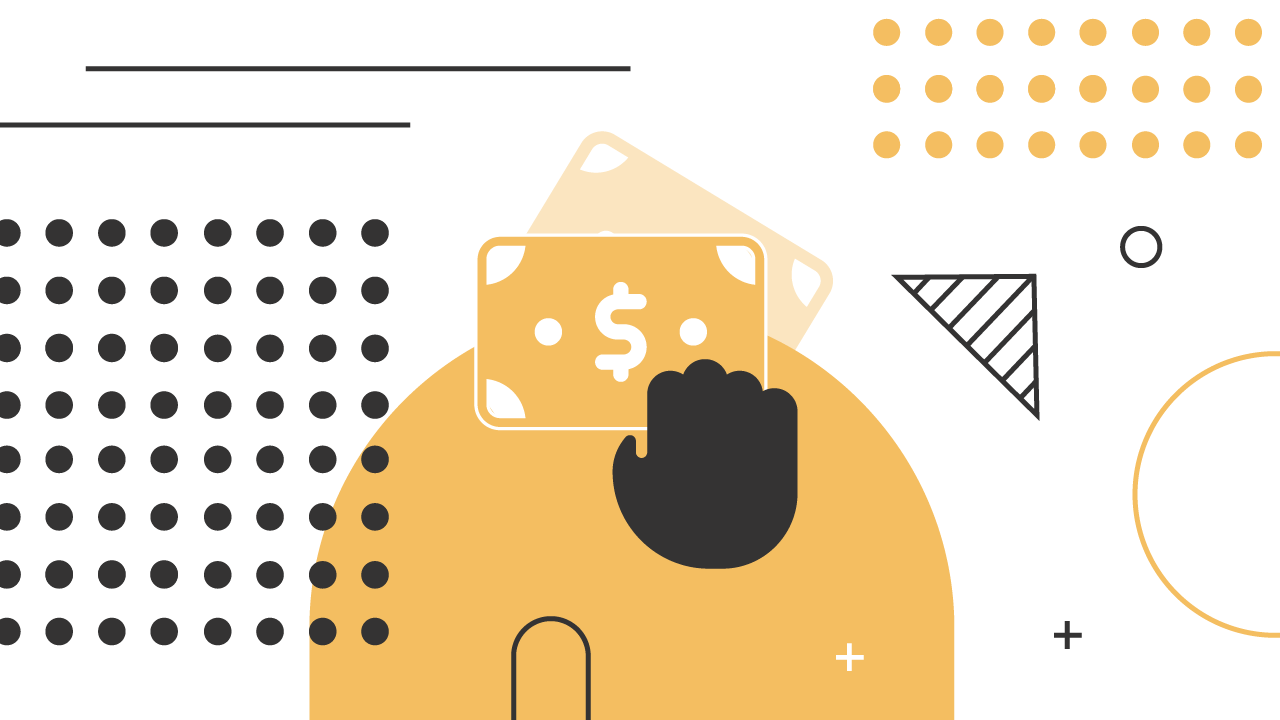Buying a car is a major financial decision. If you purchase a car using an auto loan, you’re paying for that decision every month for the next two to eight years. That doesn’t mean you have to be stuck...
Buying a car is a major financial decision.
If you purchase a car using an auto loan, you’re paying for that decision every month for the next two to eight years.
That doesn’t mean you have to be stuck with the loan you initially took out, though. You have options.
If you’re not satisfied with your existing loan conditions or you need to adjust your monthly car payments due to a change in your financial situation, you could always refinance your car loan.
Refinancing Your Auto Loan
When you refinance a car loan, you’re replacing your current auto loan with a new one with terms that are more favorable to you.
Your new loan may have a lower interest rate, lower monthly payments or a longer or shorter loan term.
The balance of your former car loan is paid off with your new loan, and you begin to make payments to your new lender until that loan is paid off.
When Can You Refinance a Car Loan?
You can refinance your car loan at any point during the life of your loan.
You can even refinance your loan within a year of purchasing your vehicle, though it’s typically recommended to wait a few months post purchase until your vehicle’s title has transferred and your credit score has rebounded.
If you’re considering refinancing your car loan, you should do so within the first few years of your loan as that’s when you’ll pay the most in interest. Also, your car becomes older and takes on more mileage as the years go by, which can make it more difficult to secure new auto loans.
3 Reasons to Refinance a Car Loan
You might consider refinancing your current loan if you want a better interest rate, a lower monthly payment or to change the length of your loan. Remember, you don’t have to be stuck with your initial car loan if it’s not best serving you.
1. Refinance For a Better Rate
If interest rates have dropped or you now qualify for a better rate, that’s a good reason to consider refinancing. Paying down debt and improving your credit score can make new lenders more apt to refinancing your car with a lower rate.
If you didn’t shop around much when getting your current car loan, you may find there are financial institutions and other lenders offering lower interest rates. For example, a loan through the car dealership might charge more interest than a loan through a local credit union.
2. Refinance For a Lower Monthly Payment
Auto loan refinancing can reduce your monthly payment and give you more room in your budget for other expenses or savings priorities.
Having lower monthly car payments can help if you’re in a tight financial spot or if you need to free up money to go toward other expenses. Or you might want to refinance for a lower monthly bill just so you’ll save money in interest over the life of your loan.
Refinancing with a lower interest rate is one way to reduce your monthly bill. Another option is to refinance with a longer loan term. Going from a 36-month loan to a 72-month loan, for example, will mean you’ll pay less each month — but you will end up paying more in interest over time.
3. Refinance to Change the Length of Your Car Loan
Refinancing auto loans can speed up or slow down the time it takes to reach your loan payoff date.
You might want to extend the length of your loan if you need to lower your monthly payment. Or you might want to shorten the length of your loan to save money in interest or to have the debt cleared away faster so you can focus on other financial goals.

Purchase Details
Loan Calculation
If you are human, leave this field blank.

3 Reasons Not to Refinance Your Car Loan
While refinancing an auto loan can have great benefits, it’s not the right choice for everyone. This is especially true if interest rates have gone up, if you’re about to finance another big purchase or if you’re pretty close to paying off your loan.
1. Interest Rates Are Up
During times of rising interest rates, you likely won’t be getting a better deal by refinancing.
Sure, there are exceptions to this rule. If you had a poor credit score when you initially took out your auto loan and you now have excellent credit, you might get a better interest rate by refinancing. Or if you desperately need to lower your monthly car bill, you may be able to reduce the cost by extending the length of your loan, even at a higher rate.
But generally speaking, refinancing when interest rates are high won’t save you money. You should also reconsider refinancing if the market hasn’t changed but your credit score has dropped to “fair” or “poor,” which means lenders will increase the interest rates they offer you.
2. You’re Planning to Purchase a Home Soon
Refinancing your car loan could initially bring down your credit score, which could jeopardize your ability to secure a mortgage if you’re house hunting or planning to finance another major purchase.
The ding on your credit is typically temporary. Once you start making regular, on-time payments on your new auto loan, your credit score should rebound. However, you should avoid refinancing your car at the same time you’re attempting to get a mortgage or take out another loan.
3. You’re Close to Paying Off Your Loan
If you’re a year or two away from your loan payoff date, it might not make much sense to refinance. You tend to pay the bulk of the interest for the loan in the earlier years. The amount you’ll pay in fees (such as loan origination fees or prepayment penalty fees) may outweigh the savings you’ll see with a lower interest rate or lower monthly payments.
Also, car loans are harder to get for older cars and cars with high mileage. You might not come across better financing options if you try to refinance toward the end of your loan.
4 Steps to Refinance a Car Loan
If you’ve decided it makes sense for you to refinance your auto loan, here are the steps you need to take.
1. Check Your Credit Score
Lenders will be checking your credit score — among other criteria — to evaluate whether they believe you’ll be a reliable borrower and to determine what interest rate to give you. Beat them to the punch by requesting a copy of your credit report and checking it for errors, and obtaining your credit score before attempting to refinance.
You don’t necessarily need a higher credit score than when you got your original loan. Perhaps you got stuck with a high interest rate from a dealership and want to refinance with a credit union offering better interest rates. Or maybe you purchased your car when interest rates were high across the board and now market conditions have improved and rates have gone down.
You could be in a situation where your credit score hasn’t changed but your financial situation has — maybe rent’s going up or your family is growing — and you want to extend the length of your loan to get lower monthly car payments.
While you aren’t required to have a higher credit score to refinance, improving your credit score can help you get a better deal.
Follow these tips to make your credit score soar.
2. Get Quotes From Multiple Lenders
If you want the best deal when you refinance your auto loan, don’t just go with the first offer you come across. Reach out to three or four lenders for quotes.
Generally, if you keep your loan shopping within a two-week period, your credit score won’t reflect multiple credit inquiries. Some lenders may even be able to give you a quote without generating a hard credit inquiry.
Having quotes from multiple lenders also means you may be able to sway a lender to improve their offer to match or beat the competition.
3. Submit Your Loan Application
Once you select which lender you want to refinance with, you’ll need to complete an application for the new loan and sign off on all paperwork.
The lender will likely request the following information and documents:
A copy of your driver’s license Proof of income Your credit score Your car’s make, model and vehicle identification number (VIN) Your car’s age and mileage Your vehicle registration Proof of auto insurance Proof of residence Your current loan’s balance and monthly payment amountAfter receiving your loan application, your lender will complete the underwriting process and present you with the loan contract to read and sign. Make sure you carefully read the fine print and understand all the terms and conditions.
4. Start Making Payments on Your New Car Loan
Once everything has been finalized, your new lender will pay off the previous auto loan and inform you of when you’ll need to start making payments on your new loan.
You might decide to enroll in an auto-pay system so you know your payments will be made on time each month.
Frequently Asked Questions
Refinancing your car is a great way to lower your monthly payments, reduce the amount of interest you pay or change the length of your loan — whether you want to extend the loan or shorten the time it takes to pay it off.
Refinancing your auto loan can be helpful if you’re in a financial crunch and need to reduce how much you pay each month. It also makes sense if you’re now able to score a more favorable loan due to better market conditions or if you’ve improved your financial situation since buying your car.
There are no set restrictions on how long you must wait to refinance your car loan after purchasing your vehicle. However, waiting at least six months is ideal.
It can take a few months for your vehicle title to transfer over to your lender and for your credit score to rebound after opening the new loan account. Waiting several months also gives you time to improve other aspects of your credit — perhaps paying down credit cards — so you’re able to qualify for a lower interest rate.
You might see your credit score dip after refinancing your car, but it’s only temporary. When lenders run a hard credit inquiry that tends to lower your credit score a few points. However, once you start making regular, on-time payments, your credit score should improve.
Nicole Dow is a senior writer at The Penny Hoarder.
This was originally published on The Penny Hoarder, which helps millions of readers worldwide earn and save money by sharing unique job opportunities, personal stories, freebies and more. The Inc. 5000 ranked The Penny Hoarder as the fastest-growing private media company in the U.S. in 2017.

















